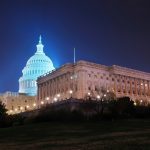A new report from Surgo Health identifies that household political dynamics is a critical and underrecognized driver of emotional strain among young Americans. Drawing on nationally representative data from its Youth Mental Health Tracker—developed in partnership with Pivotal and SHOWTIME/MTV Entertainment Studios—Surgo Health finds that political division within families is increasingly impacting how youth feel, behave, and relate to others.
Contrary to prevailing assumptions, the primary vector is not traditional media or social platforms. It’s parents and peers.
“The influence isn’t coming from social media or elected officials, it’s coming from the dinner table,” said Dr. Sema Sgaier, CEO of Surgo Health. “This data signals a fundamental shift: young people are internalizing political conflict through close relationships, not headlines.”
Key Insights
1. Political anxiety is now a baseline reality.
60% of youth report worrying about U.S. politics.
Rates spike among girls (71%) and LGBTQ+ youth (79%).
Youth who oppose the current administration are 1.8x more likely to report recent mental health challenges.
2. Political division is damaging personal relationships.
1 in 5 youth say political arguments have disrupted family or peer dynamics.
Nearly 50% report anxiety when discussing politics in school or at work.
3. Parents and Caregivers are the top political reference point—and emotional proxy.
65% of youth report parents and caregivers as their most cited political source.
Youth who feel heard by their caregivers are 1.4x more likely to report a strong sense of meaning in life.
Those who feel dismissed are nearly 2x more likely to report hopelessness.
Implications for Civic and Mental Health Stakeholders
Surgo Health’s findings suggest that the nation’s polarization is not only eroding political discourse, it’s reshaping emotional development and civic readiness. The data points to a new front in youth engagement: addressing the familial environments where civic identity is first formed.
“If we’re serious about preparing the next generation for democratic participation, we must also account for the emotional terrain they’re navigating today,” Dr. Sgaier added. “What they’re feeling now will define how they show up later.”





